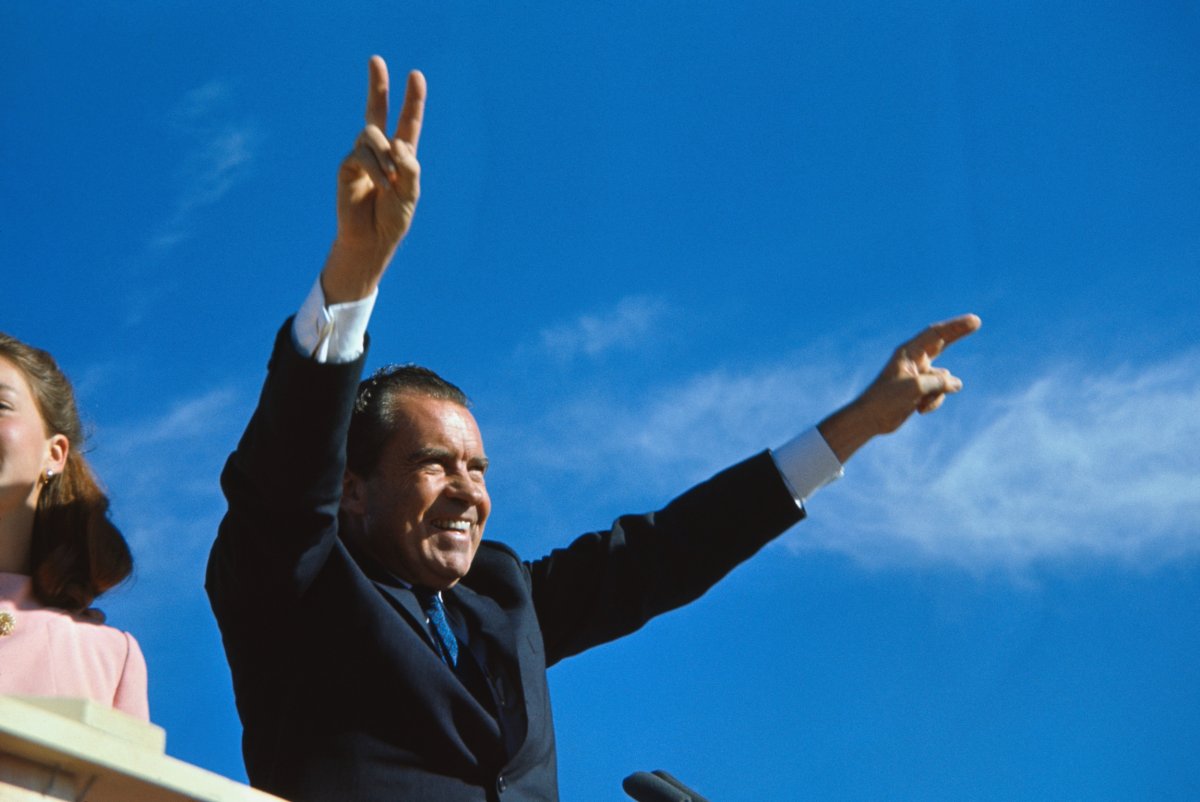Following the collapse of the Soviet Union in late 1991, former President Richard Nixon was hopeful that with substantial American leadership and Western support, Russia could be set on a path toward enduring democracy and away from foreign adventurism. Unfortunately, his early warnings about the fragility of the nascent Russian democracy were not heeded, and by the time he visited Russia for the last time in 1994, he found deepening chaos.
In his final op-ed, he wrote with characteristic prescience that a "new despotism" would fill the vacuum and Russia would be back to its old expansionist tricks, particularly with regard to Ukraine.
"The independence of Ukraine is indispensable," he wrote. "A Russian-Ukrainian confrontation would make Bosnia look like a Sunday-school picnic. Moscow should be made to understand that any attempt to destabilize Ukraine—to say nothing of outright aggression—would have devastating consequences for the Russian-American relationship. Ukrainian stability is in the strategic interest of the United States. To the extent that Kiev is prepared to proceed with economic reforms, supporting these efforts should be a national security priority for the U.S."
Nearly three decades later, that Russian-Ukrainian confrontation is upon us, thanks in large part to a lack of strong American leadership—both then and now.
Nixon saw a providential opportunity to help shape America's relationship with post-Soviet Russia. As his foreign policy assistant at the time, I witnessed his tireless efforts to leverage American power to encourage Russian liberalization.
During his last trips to Russia, he met with Soviet President Mikhail Gorbachev and, later, Russian President Boris Yeltsin. He also insisted on meeting with political and economic reformers, and upon returning to the U.S, he privately advised Presidents George H.W. Bush and Bill Clinton and select members of Congress.
Although Soviet communism was finished, Nixon warned that Russia would not suddenly shed its centuries-old expansionist inclinations. In retrospect, his warnings about resurgent Russian nationalism predicted the Putin era with chilling accuracy.
In 1992, Nixon wrote a now-famous memorandum to Bush entitled, "How to Lose the Cold War," which argued for significant American aid to shore up the fledgling Russian democracy. For a fraction of what was spent during the Cold War, we could take certain targeted, accountable measures that would invest in greater stability and peace.
Nixon suggested a modest version of the post-World War II Marshall Plan for European reconstruction: greater access to Western markets for Russian exports, rescheduling of the Soviet debt, providing billions of dollars through the International Monetary Fund for currency stabilization, the creation of a "free enterprise corps" to help prepare Russians for the free market, the creation of a single Western-led organization to coordinate the aid response and continued humanitarian aid.

Without such support, Nixon argued, the Russian spirit of expansionism would survive the collapse of communism and give rise to a leader who would pursue a restoration of the Russian empire:
"If Yeltsin fails," Nixon cautioned, "the prospects for the next 50 years will turn grim...a new, more dangerous despotism based on extremist Russian nationalism will take power. ...Even before communism, Russia had an expansionist tradition dating back seven centuries. The leaders of a new despotism...will stoke nationalist passions and exploit the tendency of the Russian people to turn to the strong hand—even to dictatorship—during times of troubles."
He accurately predicted that "war could break out in the former Soviet Union as the new despots use force to restore the 'historical borders' of Russia. The new East European democracies would be imperiled."
Earlier, Nixon had hinted at where the seeds of the new despotism might take root. He visited Moscow in April 1991—months before the final collapse of the Soviet Union—and praised the reformers, but warned that the KGB and military leaders were still "very hard-line old-time reactionaries." It was reported during his trip that "KGB chief Vladimir Kryuchkov showed signs of wanting to go further than Gorbachev in cracking down on rebellious Soviet republics and on dissent in Moscow." At the time, Vladimir Putin was serving loyally as a colonel in Kryuchkov's KGB.
While Bush was resistant to Nixon's push for greater Western assistance, Clinton was more inclined, and in 1993—shortly after he spoke with Nixon—Clinton pledged $1 billion in aid.
That inadequate commitment could not overcome the profound problems of the new Russia, however. As a result—as Nixon had predicted—a strongman assumed soon power and instituted a familiar authoritarianism at home and an aggressive interventionism in Russia's near-abroad, including in Georgia, Crimea and, currently, Ukraine.
Today, if Putin goes down, renewed calls for aid to Russia are likely, but the global dynamics—and sober U.S. and Western budgetary realities—are far different this time. Any successor regime in Russia, even if more democratic, is unlikely to get much meaningful direct assistance.
If Nixon's proposal for more fulsome assistance had been adopted, would Russia today be more democratic and less predatory? It's impossible to know. But Nixon was the only leader with the foresight to understand what was likely to happen in Eastern Europe absent robust U.S. leadership—and as usual, he was correct. The world is now suffering the consequences.
Monica Crowley served as foreign policy assistant to former President Richard Nixon during his final years and as assistant secretary of the treasury in the Trump administration.
The views expressed in this article are the writer's own.
Uncommon Knowledge
Newsweek is committed to challenging conventional wisdom and finding connections in the search for common ground.
Newsweek is committed to challenging conventional wisdom and finding connections in the search for common ground.
About the writer
To read how Newsweek uses AI as a newsroom tool, Click here.








